-
 Bitcoin
Bitcoin $117300
1.93% -
 Ethereum
Ethereum $3866
5.21% -
 XRP
XRP $3.109
3.81% -
 Tether USDt
Tether USDt $1.000
0.01% -
 BNB
BNB $781.5
1.52% -
 Solana
Solana $173.0
2.95% -
 USDC
USDC $0.9998
0.00% -
 Dogecoin
Dogecoin $0.2181
6.31% -
 TRON
TRON $0.3403
0.93% -
 Cardano
Cardano $0.7683
3.91% -
 Hyperliquid
Hyperliquid $40.08
5.09% -
 Sui
Sui $3.742
7.38% -
 Stellar
Stellar $0.4152
4.69% -
 Chainlink
Chainlink $18.40
10.03% -
 Bitcoin Cash
Bitcoin Cash $580.6
2.21% -
 Hedera
Hedera $0.2543
4.25% -
 Ethena USDe
Ethena USDe $1.001
-0.01% -
 Avalanche
Avalanche $22.94
3.52% -
 Litecoin
Litecoin $121.8
2.24% -
 UNUS SED LEO
UNUS SED LEO $8.955
-0.41% -
 Toncoin
Toncoin $3.330
3.03% -
 Shiba Inu
Shiba Inu $0.00001270
2.97% -
 Uniswap
Uniswap $10.34
6.42% -
 Polkadot
Polkadot $3.805
3.86% -
 Dai
Dai $1.000
0.01% -
 Bitget Token
Bitget Token $4.429
1.80% -
 Cronos
Cronos $0.1495
4.65% -
 Monero
Monero $255.6
-9.08% -
 Pepe
Pepe $0.00001096
4.40% -
 Aave
Aave $282.9
7.85%
Are there many arbitrage opportunities in Bitfinex contracts? How to use the price difference to make a profit?
Bitfinex offers lucrative arbitrage opportunities with futures and perpetual contracts; traders can profit by exploiting price differences between spot and futures markets.
May 05, 2025 at 08:35 am
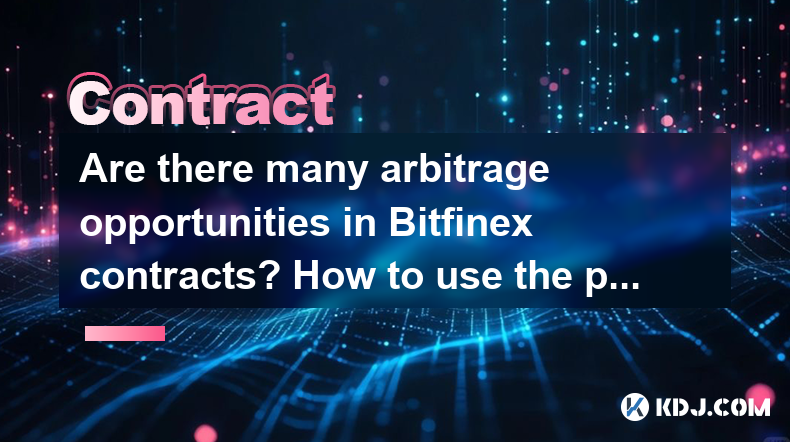
In the world of cryptocurrency trading, arbitrage opportunities can be a lucrative way to make profits by taking advantage of price differences across different platforms. One such platform where traders often look for these opportunities is Bitfinex, especially with its futures and perpetual contracts. This article will explore the potential arbitrage opportunities within Bitfinex contracts and provide a detailed guide on how to use these price differences to generate profits.
Understanding Arbitrage in Cryptocurrency Trading
Arbitrage in the cryptocurrency market involves buying a cryptocurrency on one exchange where the price is lower and simultaneously selling it on another exchange where the price is higher. This strategy leverages the price discrepancies that can occur due to various factors, such as liquidity differences, market inefficiencies, and regional trading patterns. In the context of Bitfinex contracts, arbitrage can be applied to both futures and perpetual contracts, where traders can exploit price differences between the spot market and the futures market.
Types of Bitfinex Contracts
Bitfinex offers two main types of contracts that traders can use for arbitrage: futures contracts and perpetual contracts. Futures contracts are agreements to buy or sell an asset at a future date at a predetermined price, while perpetual contracts are similar but do not have an expiration date, allowing traders to hold positions indefinitely. Understanding the differences between these contracts is crucial for identifying arbitrage opportunities.
Identifying Arbitrage Opportunities in Bitfinex Contracts
To identify arbitrage opportunities in Bitfinex contracts, traders need to monitor the price differences between the spot market and the futures or perpetual markets. Here are some key steps to identify these opportunities:
- Monitor Price Discrepancies: Use trading tools and platforms to continuously monitor the prices of the underlying cryptocurrency on the spot market and the corresponding futures or perpetual contracts on Bitfinex.
- Calculate the Basis: The basis is the difference between the futures or perpetual contract price and the spot price. A positive basis indicates that the futures or perpetual price is higher than the spot price, while a negative basis indicates the opposite.
- Evaluate Market Conditions: Consider factors such as liquidity, trading volume, and market volatility, which can affect the feasibility and profitability of arbitrage opportunities.
Executing Arbitrage Trades on Bitfinex Contracts
Once an arbitrage opportunity is identified, the next step is to execute the trade. Here’s a detailed guide on how to use the price difference to make a profit on Bitfinex contracts:
- Open a Bitfinex Account: If you don’t already have one, sign up for a Bitfinex account. Complete the necessary verification steps to ensure you can trade futures and perpetual contracts.
- Fund Your Account: Deposit the required cryptocurrency or fiat currency into your Bitfinex account to cover the margin requirements for the contracts you plan to trade.
- Navigate to the Trading Interface: Go to the trading section on Bitfinex and select the futures or perpetual contracts you want to trade.
- Execute the Arbitrage Trade:
- Buy Low on the Spot Market: Purchase the cryptocurrency on the spot market where the price is lower.
- Sell High on the Futures/Perpetual Market: Simultaneously, sell the equivalent amount on the futures or perpetual market where the price is higher.
- Monitor and Close the Position: Keep an eye on the price movements and market conditions. Once the price difference narrows or disappears, close your positions to lock in the profit.
Risks and Considerations
While arbitrage can be profitable, it comes with its own set of risks and considerations that traders must be aware of:
- Execution Risk: The speed of execution is crucial in arbitrage. Delays can result in missed opportunities or losses if the price difference narrows before the trade is completed.
- Liquidity Risk: Low liquidity on either the spot or futures market can make it difficult to execute trades at the desired prices.
- Market Risk: Unexpected market movements can impact the profitability of arbitrage trades, especially in highly volatile markets.
- Fees and Costs: Consider the trading fees and other costs associated with executing arbitrage trades on Bitfinex, as these can eat into your profits.
Tools and Resources for Arbitrage Trading
To enhance your arbitrage trading on Bitfinex contracts, consider using the following tools and resources:
- Trading Bots: Automated trading bots can help execute arbitrage trades more efficiently and quickly than manual trading.
- Price Tracking Platforms: Use platforms that provide real-time price data across multiple exchanges to identify arbitrage opportunities.
- Arbitrage Calculators: Utilize arbitrage calculators to quickly assess the potential profitability of different arbitrage opportunities.
Case Studies of Successful Arbitrage on Bitfinex Contracts
To provide a practical perspective, let's look at a couple of case studies where traders successfully used arbitrage on Bitfinex contracts:
- Case Study 1: A trader identified a significant price discrepancy between the spot price of Bitcoin on Bitfinex and the price of a Bitcoin perpetual contract. By buying Bitcoin on the spot market and simultaneously selling the perpetual contract, the trader was able to lock in a profit of 2% within a few minutes.
- Case Study 2: Another trader noticed a temporary price divergence between the spot price of Ethereum and the price of an Ethereum futures contract. By quickly executing an arbitrage trade, the trader profited from a 1.5% price difference that lasted for approximately 10 minutes.
Frequently Asked Questions
Q: Can I use arbitrage strategies on Bitfinex contracts with other exchanges?
A: Yes, arbitrage strategies can be used across different exchanges, not just within Bitfinex. However, you must consider the additional complexities such as transfer times between exchanges and potential differences in trading fees.
Q: How do I manage the risk of slippage when executing arbitrage trades on Bitfinex contracts?
A: To manage slippage risk, use limit orders instead of market orders to ensure you buy or sell at your desired price. Additionally, consider using trading bots that can execute trades more quickly and efficiently.
Q: Are there any regulatory considerations I should be aware of when engaging in arbitrage on Bitfinex contracts?
A: Yes, regulatory considerations vary by jurisdiction. Ensure you comply with local laws and regulations regarding cryptocurrency trading and arbitrage. Always consult with a legal professional if you are unsure about the regulatory environment in your area.
Q: Can I automate my arbitrage trades on Bitfinex contracts?
A: Yes, you can automate arbitrage trades using trading bots. These bots can monitor price differences and execute trades automatically, which can be particularly useful for capturing fleeting arbitrage opportunities.
Disclaimer:info@kdj.com
The information provided is not trading advice. kdj.com does not assume any responsibility for any investments made based on the information provided in this article. Cryptocurrencies are highly volatile and it is highly recommended that you invest with caution after thorough research!
If you believe that the content used on this website infringes your copyright, please contact us immediately (info@kdj.com) and we will delete it promptly.
- Bitcoin Reserve, Gold Revaluation, Congress Considers: A New Era for US Financial Strategy?
- 2025-08-08 04:30:12
- KAITO's Momentum: Can It Reclaim Support Amidst Social Media Scrutiny?
- 2025-08-08 04:30:12
- Pi Coin's dApp and AI Potential: Building a Decentralized Future
- 2025-08-08 02:30:12
- Ruvi AI Takes the Lead: Outshining Dogecoin on CoinMarketCap
- 2025-08-08 02:50:12
- Cryptos Under $1: Is Ripple Still the King?
- 2025-08-08 03:50:12
- Cold Wallet, Bonk Price, ICP Price: Navigating the Crypto Landscape in 2025
- 2025-08-08 03:56:12
Related knowledge
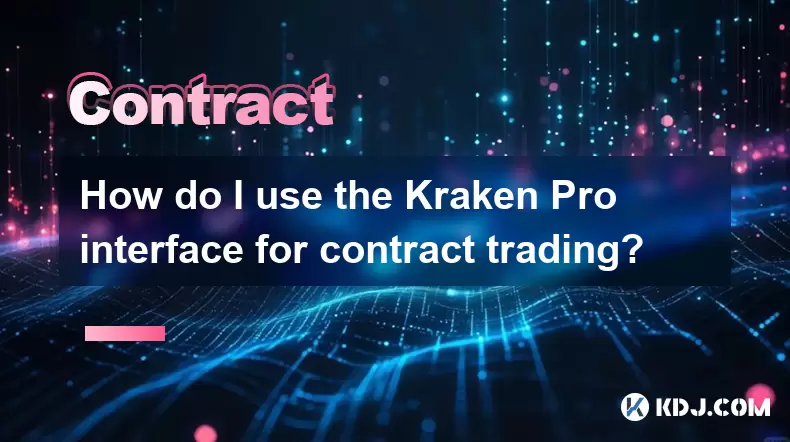
How do I use the Kraken Pro interface for contract trading?
Aug 08,2025 at 05:00am
Understanding the Kraken Pro Interface for Contract TradingThe Kraken Pro platform is designed for advanced traders who require speed, precision, and ...
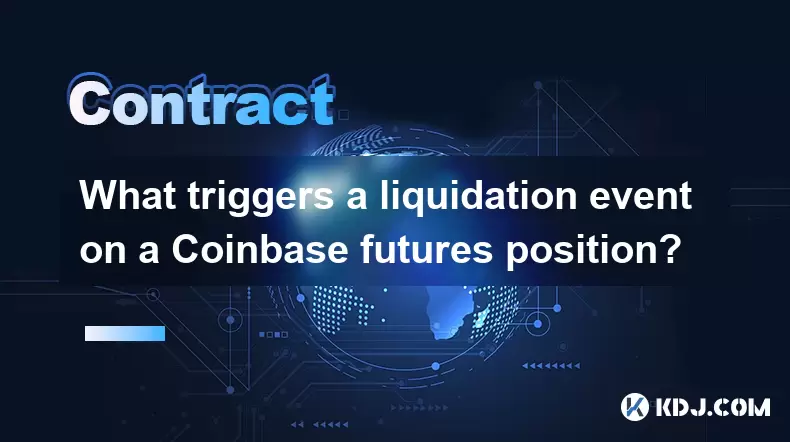
What triggers a liquidation event on a Coinbase futures position?
Aug 08,2025 at 01:15am
Understanding Futures Contracts on CoinbaseFutures contracts on Coinbase allow traders to speculate on the future price of a cryptocurrency, such as B...
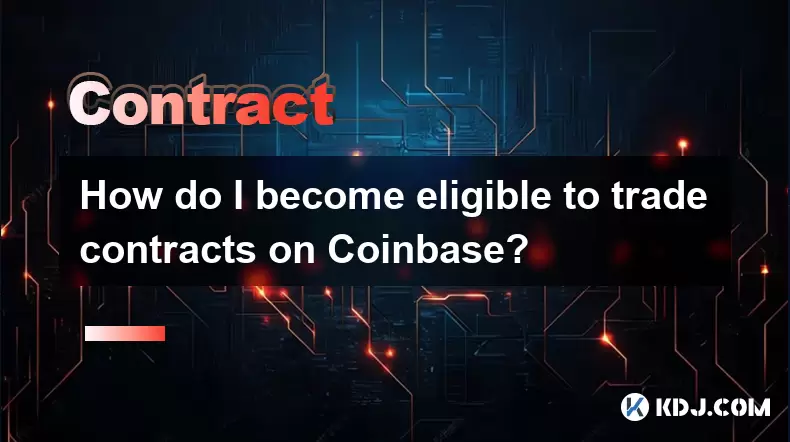
How do I become eligible to trade contracts on Coinbase?
Aug 08,2025 at 04:42am
Understanding Contract Trading on CoinbaseContract trading on Coinbase refers to the ability to trade derivative financial instruments such as futures...
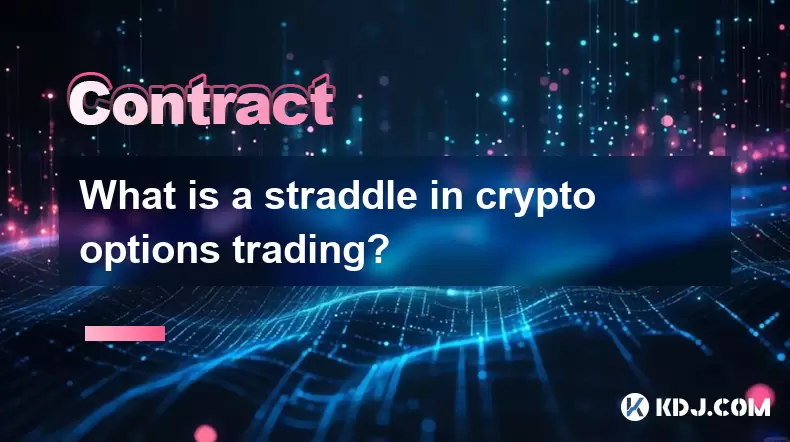
What is a straddle in crypto options trading?
Aug 07,2025 at 11:15pm
Understanding the Basics of a Straddle in Crypto OptionsA straddle is an options trading strategy used when a trader expects significant price movemen...
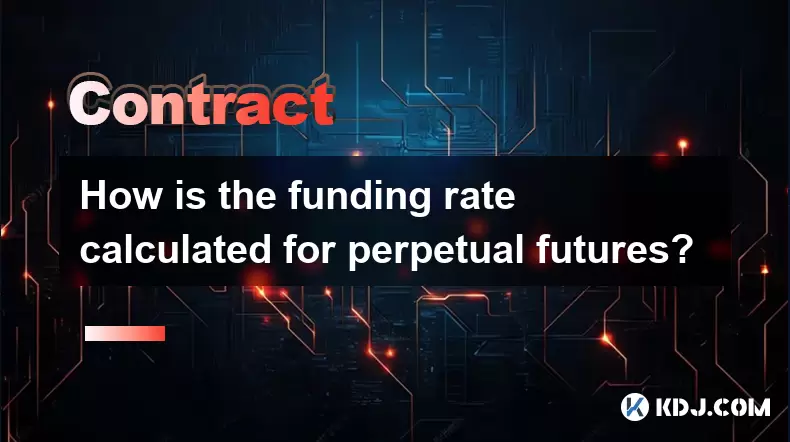
How is the funding rate calculated for perpetual futures?
Aug 07,2025 at 11:36pm
Understanding the Basics of Perpetual FuturesPerpetual futures are a type of derivative contract that does not have an expiration date, allowing trade...
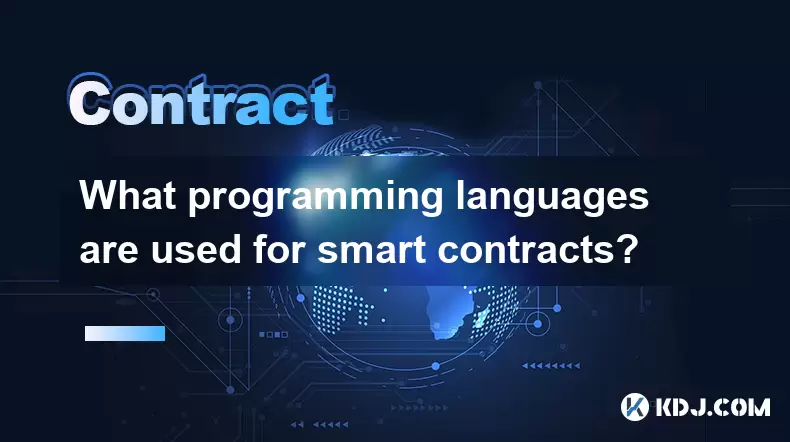
What programming languages are used for smart contracts?
Aug 07,2025 at 06:07pm
Understanding Smart Contracts and Their Execution EnvironmentSmart contracts are self-executing programs deployed on blockchain networks that automati...

How do I use the Kraken Pro interface for contract trading?
Aug 08,2025 at 05:00am
Understanding the Kraken Pro Interface for Contract TradingThe Kraken Pro platform is designed for advanced traders who require speed, precision, and ...

What triggers a liquidation event on a Coinbase futures position?
Aug 08,2025 at 01:15am
Understanding Futures Contracts on CoinbaseFutures contracts on Coinbase allow traders to speculate on the future price of a cryptocurrency, such as B...

How do I become eligible to trade contracts on Coinbase?
Aug 08,2025 at 04:42am
Understanding Contract Trading on CoinbaseContract trading on Coinbase refers to the ability to trade derivative financial instruments such as futures...

What is a straddle in crypto options trading?
Aug 07,2025 at 11:15pm
Understanding the Basics of a Straddle in Crypto OptionsA straddle is an options trading strategy used when a trader expects significant price movemen...

How is the funding rate calculated for perpetual futures?
Aug 07,2025 at 11:36pm
Understanding the Basics of Perpetual FuturesPerpetual futures are a type of derivative contract that does not have an expiration date, allowing trade...

What programming languages are used for smart contracts?
Aug 07,2025 at 06:07pm
Understanding Smart Contracts and Their Execution EnvironmentSmart contracts are self-executing programs deployed on blockchain networks that automati...
See all articles

























































































